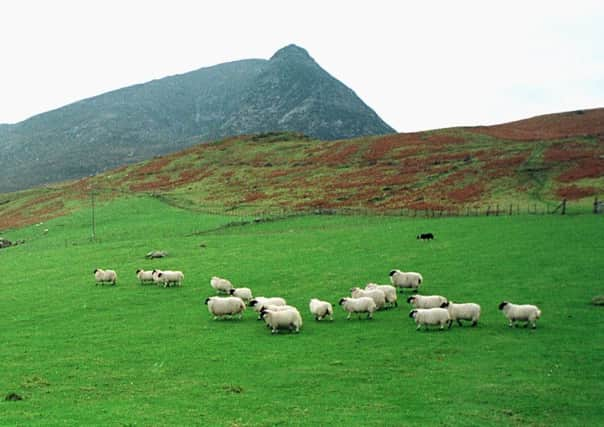Upland landowners told to become less blinkered


In one of the day’s keynote presentations, Professor Davy McCracken, head of the SRUC’s hill research centre, said that for too long farms and estates in these areas had been given over to a single land use.
“Historically the different land uses in hill and upland areas have been seen as being in competition with each other – it is either farming or forestry or game management or conservation management,” he said. “This has effectively meant that the land has been limited to a single product coming from it – be it sheep or trees, game or conservation.”
Advertisement
Hide AdAdvertisement
Hide AdHe told the conference, organised by the SRUC and Sepa, that these deeply held perceptions and historical barriers between different land uses had to be broken down to give those living in these areas the ability to become involved in – and benefit from – a wider range of income streams.
However, McCracken said that while this would help to maintain economic viability it was likely that there would still be a need for public support to be ensure the sector’s future. Claiming that hill farms provided over 2.2 million hectares of “high nature value systems” he said that there was little recognition of this service – and even less value put on it.
McCracken said later that part of the difficulty was finding a way to reward farmers for what they were already doing on the environmental front: “While it is easy to get schemes for changing what farmers do accepted, getting measures which reward what they are already doing is much more difficult.”
He said he was keen to see a new approach being taken in the Republic of Ireland tested here – where, rather than giving producers specific management directions they were paid by results: “Rather than setting prescribed times for cutting fields, or shutting areas off, farmers are encouraged to take advice – but are ultimately responsible for the means of achieving the results on which their payments are based themselves.”
• In the shorter term, NFU Scotland yesterday said that it did not believe the Scottish Government’s claims that the crucial £65 million Less Favoured Areas support for the hills and uplands would only be delayed by a few weeks.
The union said that the new IT system which was struggling to deliver other support payments was letting farmers down again – and pointedly added that, with virtually no changes to the scheme, Scottish Government’s protestations that complexity had been the cause of delays simply wouldn’t wash: “It means the hole in Scotland’s rural economy, where farmers invest in the businesses and support feed, seed and fertiliser suppliers, machinery dealers, vets, and other associated trades is getting wider,” said union president Allan Bowie.
